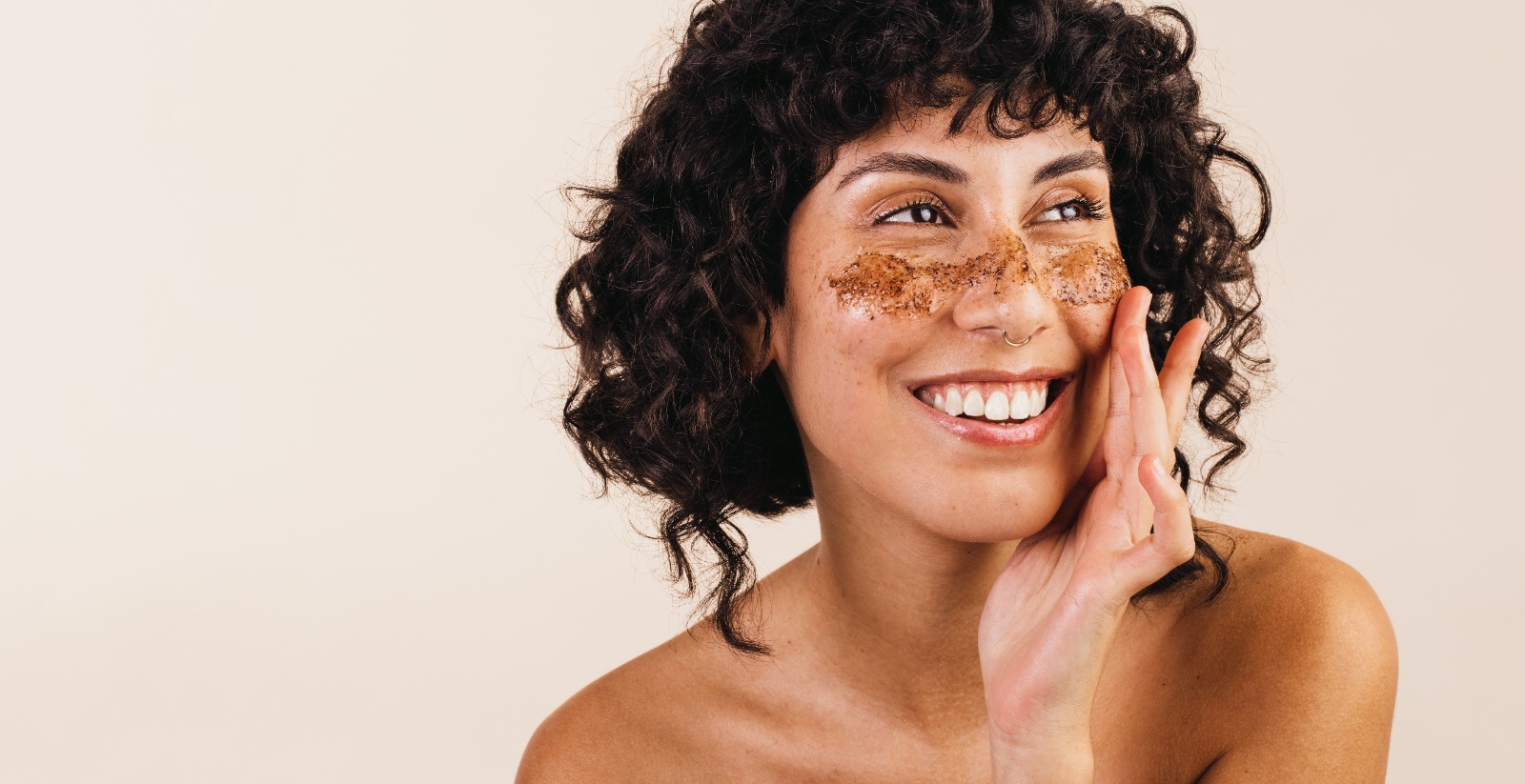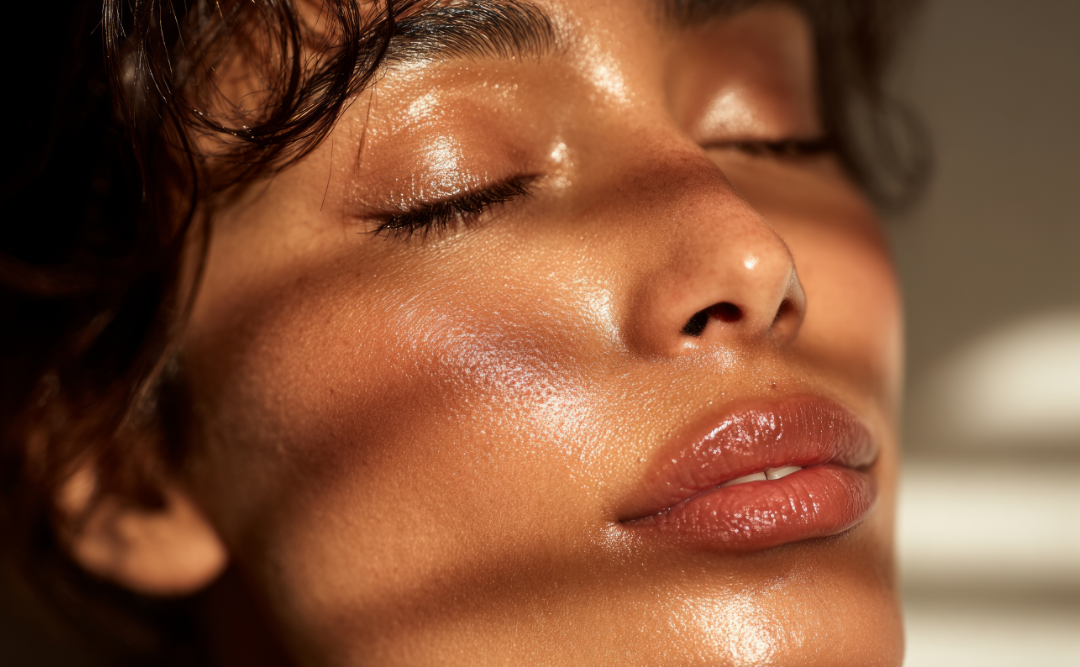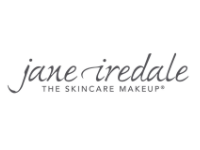Everyone is constantly exfoliating – for years it’s been touted as the main way to quickly transform your skin especially all over social media. However, exfoliating is actually nearly always far too harsh for our skin. I always say, “If your skin is working in a healthy way then any form of abrasive exfoliation isn’t needed!”
Why you shouldn’t be exfoliating:
The unfortunate truth about aggressive exfoliation is that, over time, it does the exact opposite of what you intend. Instead of enhancing your skin, it can lead to premature aging, dryness, dullness, and even increase the risk of skin cancer.
The stratum corneum, or outermost layer of skin, is just two-hundredths of a millimeter thick and can be easily removed. Even a light scratch can strip it away. Despite its fragility, the health of our skin is entirely dependent on this delicate layer.
Misconceptions about dead skin cells:
Many people mistakenly believe that the surface of the skin is covered with dead, useless cells that make the skin look dull, prevent it from “breathing,” and clog pores. They think that scrubbing these cells away will make the skin brighter and fresher.
In reality, these so-called “dead” cells are the mature, functional cells of the skin, serving an essential purpose. Even the skin cells that have died or flattened – they still have a job or a role to perform – they form our acid mantle which protects from bacteria, funguses, viruses etc; they reflect UV light, they form our waterproof barrier, helping our skin to retain moisture and are also a major part of our skin microbiome.
While your skin might seem healthier and more radiant immediately after exfoliation, you are exposing immature cells to environmental hazards long before they are equipped to handle them. These cells, shocked by sudden exposure, cannot fully protect the skin, leading to a loss of hydration and making the skin dry and dull within a few days. The cycle of damage often continues as you feel compelled to exfoliate again to regain that temporary glow. Dermaplaning is an example of an extremely damaging view of dead skin cells – the concept of scraping off our dead skin cells with a razor is something that in ten years time we will think was crazy!
The impact of exfoliation on your skin:
Exfoliating significantly thins the stratum corneum, stripping away your skin’s natural protective barrier. This leaves your skin more vulnerable to damage from light rays, free radicals, and environmental pollutants, and increases the risk of photo-aging and skin cancer. Your skin becomes dehydrated as water escapes through the compromised barrier, and harmful chemicals can penetrate more easily, putting your skin in a state of emergency. This interferes with your skin’s natural processes, leaving it more susceptible to damage.
Why your skin looks healthier, plump and glowing after exfoliation:
After removing the “dead” layer of skin through procedures like microdermabrasion, the newly exposed immature cells appear plump, moisturized, and healthy. However, these cells are not yet fully developed and lack the necessary protection to survive in a dry atmosphere, leading to dehydration and dullness a few days later. It takes about a week for the stratum corneum to fully recover.
The fallacy of treating your skin like a kitchen floor:
Scrubbing your skin as if it were a kitchen floor, stripping away everything that nature has provided to protect and moisturize it, is not scientific. Some people do this weekly under the advice of their skincare therapists. The goal of skincare should be to make your skin healthier, more hydrated, and more resilient to environmental exposure, not just to make it look better for a short time.
Intelligent exfoliation:
While exfoliation can be beneficial in certain cases, it should not be part of routine care for healthy, well-nourished skin. Advanced, scientifically formulated skincare products can make regular exfoliation unnecessary, focusing instead on maintaining the natural thickness and smoothness of the stratum corneum. The only exfoliants we work with at MJs are liquid exfoliants which are very gentle. They only remove the skin cells that aren’t required or have a job any more as opposed to stripping all the dead skin cells away from the surface from the skin. So what exfoliation should we be avoiding? Physical scrubs, harsh tools (leave the mechanical brush for cleaning the bath!), microdermabrasion, dermaplaning, hydra facials, and any liquid exfoliants which are being used without a strict routine (these are best used when having been instructed by a skin expert!).
When exfoliation is actually necessary:
Severe Photo-Aging: In cases of severe photo-aging, the stratum corneum may become excessively thick, leading to a dry, rough texture. A mild exfoliation can help therapeutic treatments penetrate more effectively.
Acne: To prevent clogged pores and acne breakouts, gently exfoliate the affected areas with an ultra-mild exfoliator or a mild AHA product to remove pore build-up.
Beyond these situations, avoid harsh exfoliators commonly found in skincare products. Abrasive ingredients like ground apricot kernels and plastic microbeads are not only harmful to your skin but also to the environment. Put down the St Ives forever please!
The best approach to exfoliation:
If you identify the need to exfoliate, use the mildest products available, such as light alpha or beta-hydroxy creams or gels. Avoid regular exfoliation, and if you combine it with topical Vitamin A, this can help minimise the negative effects by promoting epidermal growth and hydration.
Chronic over-exfoliation often results in skin that looks thin, lifeless, and unnatural. Many therapists mistakenly recommend exfoliation for normal skin, believing it will make it more radiant. However, the long-term damage is not worth the temporary smoothness and glow.
The path to truly healthy, glowing skin:
For long-lasting, naturally glowing, and healthy skin, focus on a skincare regimen rich in Vitamin A and antioxidants. This approach may take longer to show results than harsh exfoliation, but it will be worth the wait. Your skin is your body’s natural protection system—treat it with care and respect!
Give your cells the time they need to mature properly and just focus on protecting your skin barrier to get the skin of your dreams. Your mature cells know how to take care of your skin—let’s give the younger ones a chance to grow up before stepping into the spotlight, just like we did before the days of social media! Love, Nicola x









